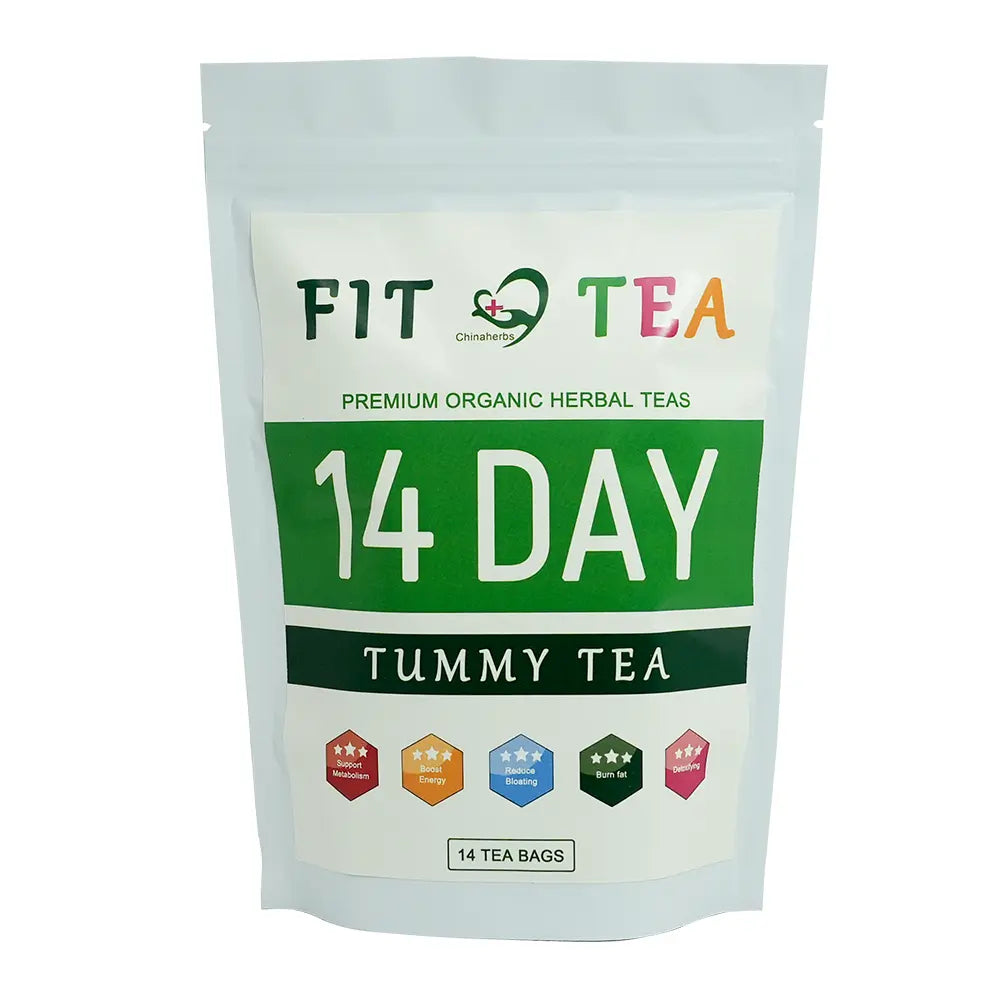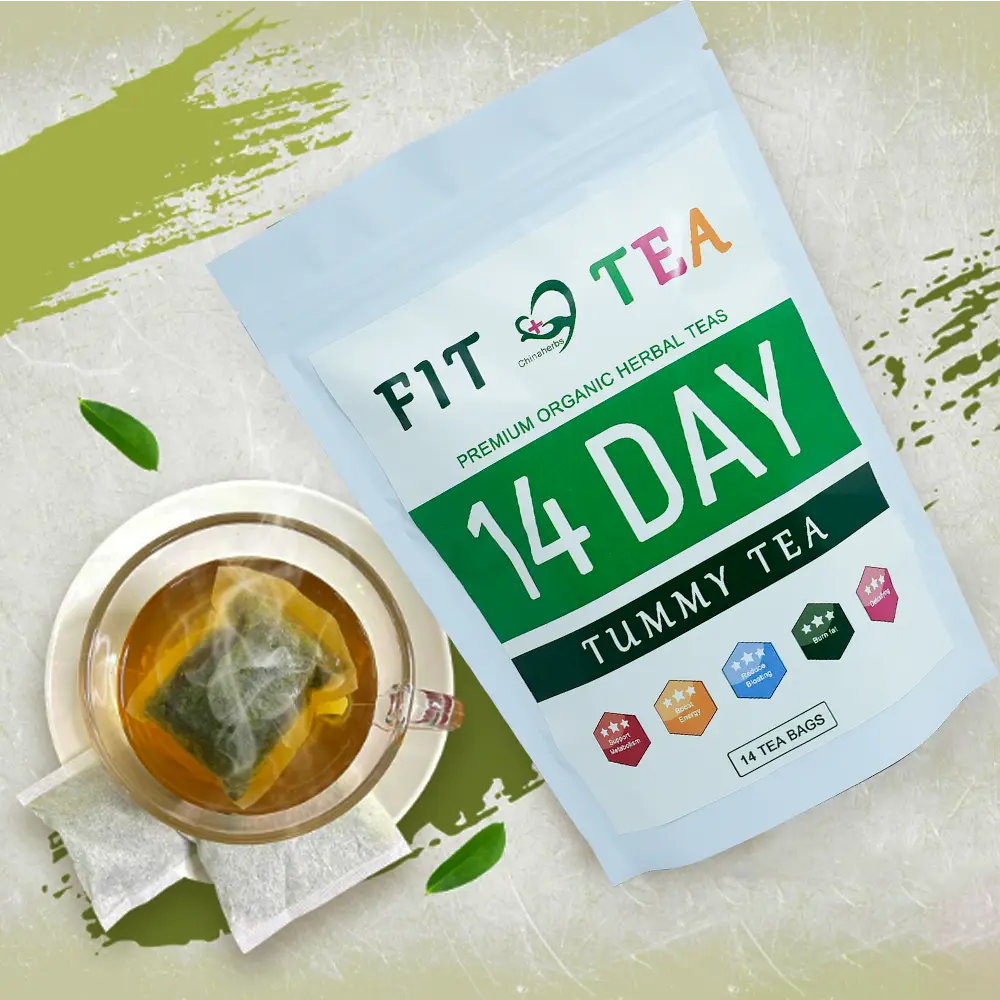Which Chinese Herbal Teas Can Be Used for Weight Loss?
HiherbsOfficial
Share
Exploring four traditional Chinese herbal teas that may complement your weight management regimen.
The Global Epidemic of Obesity
From a health perspective, obesity "ruins" more than just appearance; it poses severe risks to the body. Obesity is an independent disease and a major risk factor for Type 2 diabetes, cardiovascular diseases, hypertension, stroke, and various cancers. Data suggests that being overweight and obese is the fifth leading risk factor for death globally, with approximately 2.8 million deaths each year linked to it, prompting the World Health Organization to classify obesity as an "epidemic."
Below, we recommend four traditional chinese herbs for weight loss commonly used in tea, providing a targeted chinese medicine to lose weight strategy:
1. Lotus Leaf

This herb is the leaf of the lotus plant (*Nelumbo nucifera*). Its traditional nature and flavor are bitter and neutral, and it targets the Liver and Spleen meridians.
Key Functions:
It is traditionally used to clear summer-heat and transform dampness, raise the clear Yang energy, and cool the blood to stop bleeding. As a fundamental component of traditional chinese medicine for weight loss, Lotus Leaf is known for its ability to clear dampness and reduce stagnation.
Pharmacological Research:
- Lotus leaf exhibits lipid-lowering, weight-reducing, blood pressure-lowering, antioxidant, and free radical scavenging effects.
- The alkaloid components have antispasmodic effects on smooth muscle, along with antiviral, anti-mitotic, anti-inflammatory, and anti-allergic properties.
- It contains nuciferine, which effectively decomposes and excretes fat from the body.
- The high fiber content promotes large intestine peristalsis, aiding detoxification and bowel movements. Its aromatic compounds are thought to dissolve fat and promote diuresis, making it particularly suitable for individuals with edema-type obesity.

Preparation and Efficacy:
Combine dried Lotus Leaf, Hawthorn, Coix Seed, and dried tangerine peel in a teapot. Pour boiling water over the mixture and steep, or simmer in an herbal health pot.
Efficacy: Clears heat, aids digestion, reduces lipids, and transforms dampness. Suitable for reducing weight in individuals with Phlegm-Dampness type obesity.
2. Hawthorn Fruit

This is the dried, mature fruit of the Chinese Hawthorn (*Crataegus pinnatifida*). Its nature and flavor are sour, sweet, and slightly warm, targeting the Spleen, Stomach, and Liver meridians.
Key Functions:
It is used to aid digestion and strengthen the stomach, promote *Qi* circulation, and dissipate blood stasis.
Pharmacological Research:
- Hawthorn promotes digestion, protects the cardiovascular system, lowers blood pressure and lipids, acts as an antioxidant, enhances immunity, has antibacterial and anti-cancer effects, and can cause uterine contractions.
- The organic acids in Hawthorn are effective for digestion and relieving food stagnation, while its flavonoids are active in preventing cardiovascular disease and lowering blood lipids.
- It contains lipase, which helps rapidly break down and consume fatty foods, effectively reducing body fat.

Preparation and Efficacy:
Slice Hawthorn and shred Lotus Leaf, then boil with Cassia Seed and water. Drink the decoction when the temperature is suitable. This can also be done in an herbal health pot.
Efficacy: Strengthens the stomach and aids digestion, disperses turbidity, and lowers lipids.
3. Cassia Seed

This is the dried, mature seed of *Cassia obtusifolia* or *Cassia tora*. Its nature and flavor are sweet, bitter, and salty, and it is slightly cold. It targets the Liver and Large Intestine meridians.
Key Functions:
It clears heat and brightens the eyes, and moistens the intestines to promote bowel movements.
Pharmacological Research:
- Research indicates antibacterial effects, prevention of atherosclerosis, and inhibition of platelet aggregation.
- It also suppresses cellular immunity, enhances macrophage phagocytic function, protects the liver, promotes bowel movements, and increases gastric juice secretion.
- Cassia Seed contains dietary fiber which increases satiety and reduces appetite, helping control food intake. Furthermore, the fiber promotes intestinal peristalsis and relieves constipation. It is particularly suitable for individuals with high cholesterol, high blood pressure, and concurrent constipation.

Preparation and Efficacy:
Place Wolfberry, Chrysanthemum, and Cassia Seed in a cup. Pour boiling water over them, cover, and steep for 15 minutes. Can generally be steeped 3-5 times. Can also be decocted in an herbal health pot.
Efficacy: Wolfberry nourishes the skin, and Chrysanthemum/Cassia Seed clear heat. Long-term consumption helps eliminate toxins, control appetite, and aid weight loss.
4. Coix Seed

This is the dried, mature kernel of the Coix grass (*Coix lacryma-jobi*). Its nature and flavor are sweet, bland, and cool, targeting the Spleen, Stomach, and Lung meridians.
Key Functions:
It strengthens the Spleen and percolates dampness, resolves painful obstruction (Bi syndrome), stops diarrhea, clears heat, and expels pus.
Pharmacological Research:
- Research suggests various effects, including lowering blood sugar, promoting ovulation, and acting as an antipyretic, analgesic, anti-inflammatory, and anti-tumor agent, as well as enhancing immune function.
- The vitamins in Coix Seed help accelerate cell metabolism, assisting in fat consumption.
- It is rich in dietary fiber, which speeds up intestinal peristalsis and lubricates the bowels, offering weight loss benefits.
- In TCM, obesity is often linked to Phlegm-Dampness. As the Spleen is responsible for transforming Phlegm-Dampness, consuming Coix Seed can strengthen the Spleen's function, alleviating symptoms and enhancing the effect of weight reduction.

Preparation and Efficacy:
Lightly crush the Coix Seed, slice the Hawthorn into small pieces, and place them with the Lotus Leaf in a cup. Pour boiling water over them, cover, and steep for 15-20 minutes. Can also be decocted in an herbal health pot.
Efficacy: Strengthens the Spleen, promotes diuresis, and aids weight reduction.










